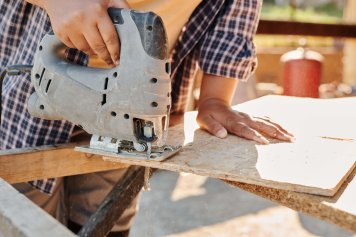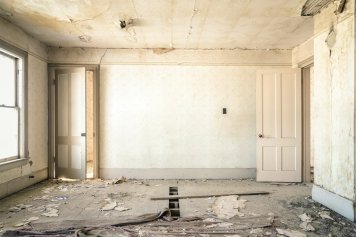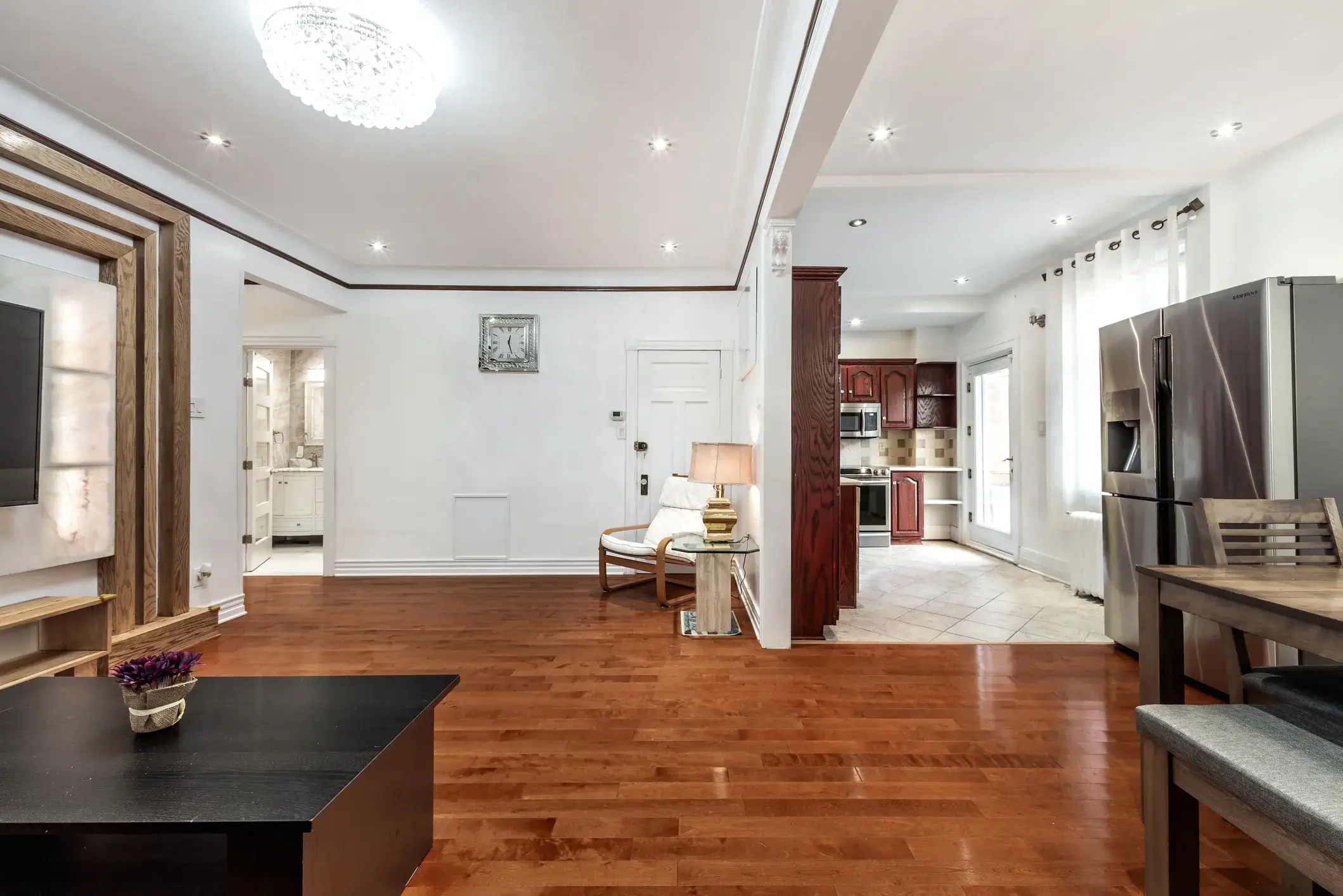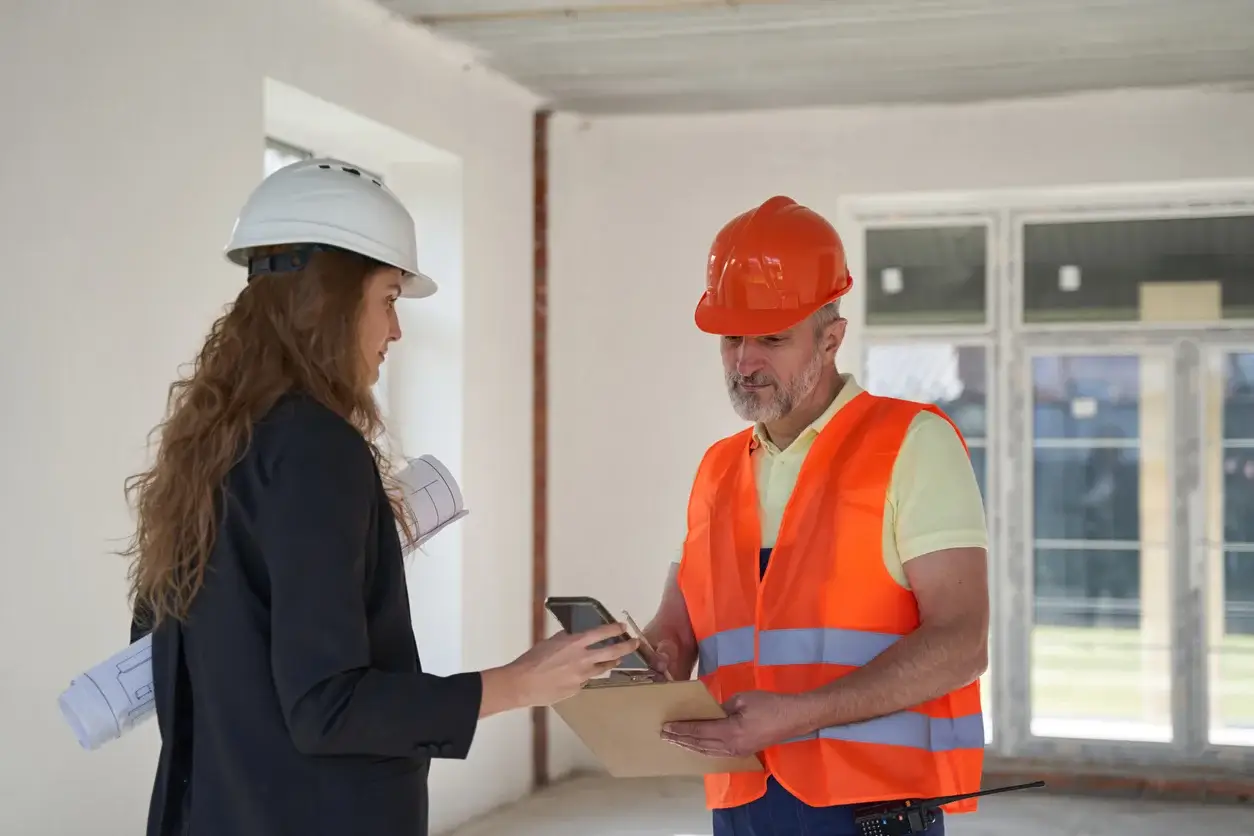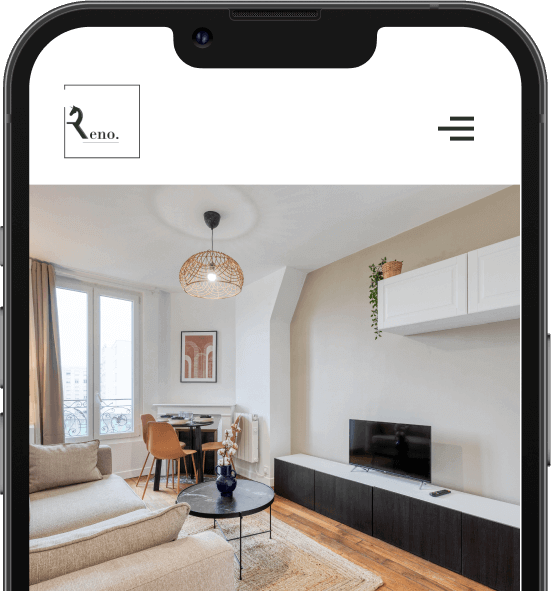Divers systèmes de prêt immobilier permettent de financer achat et travaux d’amélioration d’une maison ou d’un appartement. Parmi les plus plébiscités, le Prêt à taux zéro (PTZ) et l’éco-PTZ sont des aides financières remboursables sans intérêt. Le premier facilite l’accession à la propriété alors que le second finance la réalisation de travaux énergétiques dans le logement. Dans les deux cas, ces dispositifs de soutien sont conduits par l’État, à destination des ménages aux revenus les plus modestes. Le PTZ classique s’avère particulièrement utile aux futurs acquéreurs qui achètent dans le neuf ou dans l’ancien. Ce prêt aidé est accordé sous conditions de ressources et permet de réaliser d’importantes économies. Découvrez dans cet article les tenants et aboutissants du PTZ sur les travaux de rénovation.
Le prêt à taux zéro, un prêt aidé par le gouvernement français
Maintenu jusqu’à la fin de l’année 2023, le PTZ désigne un crédit immobilier dont les intérêts sont à la charge du gouvernement pour faciliter l’accès à la propriété. Cette dernière peut s’agir d’un logement dans le neuf comme dans l’ancien. Si le projet immobilier concerne l’acquisition d’un bien d’époque, le prêt à taux zéro serait considéré comme une aide destinée à sa rénovation. Pour effectuer des travaux d’énergie spécifiques dans le logement, l’emprunteur peut également bénéficier d’un éco-PTZ complémentaire.
Dépourvu d’intérêt et de frais de dossier, le prêt à taux zéro classique permet de financer 20 à 40 % un projet immobilier. Autrement dit, le dispositif subventionne une partie de l’achat ou de la construction d’une résidence principale. La plupart des banques conventionnées par l’État proposent cette aide, mais ce n’est pas le cas de tous les établissements à crédit en ligne. En effet, les démarches administratives et financières nécessaires pour proposer le PTZ ne sont pas forcément réalisables pour ces organismes bancaires spécifiques. Au niveau des établissements traditionnels, l’attribution du prêt à taux zéro est soumise aux mêmes critères qu’un emprunt classique.
Pour instruire votre demande, vous devez fournir à votre banque les documents suivants :
-
- Votre pièce d’identité ou livret de famille,
-
- Vos 3 derniers avis d’imposition,
-
- Une attestation sur l’honneur de l’acheteur,
-
- Le devis des opérations immobilières,
-
- Au terme des travaux, les justificatifs de ces derniers étant visiblement effectués.
Le principal objectif du prêt aidé vise à encourager l’achat de résidence neuve ou ancienne respectant des conditions de performances énergétiques strictes. Il est accordé aux primoaccédants et peut également être cumulable avec d’autres aides travaux (les aides de l’Agence nationale pour l’habitat [ANAH], MaPrimeRénov’, les aides des collectivités territoriales ou les certificats d’énergie) proposées par les pouvoirs publics, et encadrées par la loi. Pour conclure, ce crédit peut servir à financer l’achat d’un logement neuf, comme à financer un bien immobilier sous réserve de le rénover.
Le PTZ pour l’acquisition d’un bien dans l’ancien, sous condition de travaux
Au sens strict du terme, le prêt à taux zéro peut aider à acheter un logement ancien en finançant 40 % du prix d’acquisition. Ce dispositif peut également servir à financer des travaux de rénovation dans votre résidence principale. Il peut s’agir de la construction de votre futur logement (création de garage ou de terrasse) ou des travaux destinés à réaliser des économies d’énergie (isolation thermique, installation de chauffage ou de production d’eau chaude sanitaire). Pour y prétendre, les rénovations entreprises doivent être à hauteur de 25 % du montant total de l’opération (achat + travaux).
C’est dans ce cadre que l’éco-PTZ peut être cumulé avec le prêt à taux zéro. Cette aide complémentaire destinée exclusivement à la rénovation énergétique est accordée à condition que vous soyez propriétaire occupant, bailleur ou l’un des copropriétaires d’un bien construit sur le territoire français. Comme le PTZ ancien, l’éco-PTZ s’avère versé par certaines banques traditionnelles, mais cette fois-ci, sans aucune condition de ressources. Concrètement, ce prêt est une avance de fonds faisant partie des aides à la rénovation énergétique.
À noter qu’il est possible de faire une demande d’éco-Prêt à taux zéro complémentaire, en sus du PTZ classique, pour la réalisation de travaux de rénovation ponctuelle. Ceci, dans le but d’améliorer la performance énergétique du bien immobilier. Les travaux effectués doivent impérativement respecter un seuil de performance énergétique minimale. En d’autres termes, l’objectif de l’éco-Prêt à taux zéro consiste à atteindre un niveau de performance énergétique et d’émissions de gaz à effet de serre minimal. Pour bénéficier de l’éco-PTZ, les travaux doivent être effectués par des professionnels qualifiés reconnus garants de l’environnement, communément appelés « RGE ».
D’ailleurs, les deux prêts conjoints peuvent être cumulés à l’unique condition de ne pas dépasser le montant plafonné à 30 000 euros, fixé par le gouvernement. Le prêt à taux zéro permet tout simplement la réalisation d’importantes rénovations, correspondant à une remise à neuf.
Quels sont les travaux éligibles pour bénéficier du prêt à taux zéro ?
Pour bénéficier du prêt à taux zéro dans l’ancien, le logement convoité doit impérativement faire l’objet de certains travaux de rénovation. Il existe notamment trois grandes catégories de travaux éligibles. Les voici :
-
- La création de nouveaux espaces/annexes (garage, terrasse, emplacement de parking, etc.),
-
- La modernisation, l’assainissement ou l’aménagement des surfaces habitables,
-
- La réalisation de travaux d’économies d’énergie du logement.
Le prêt à taux zéro permet d’emprunter une somme d’argent remboursable chez une banque, sans devoir payer d’intérêts en retour. De ce fait, il permet la création de nouvelles surfaces habitables comme un garage ou une terrasse, l’aménagement d’une cuisine ou d’une salle d’eau et les travaux d’économie d’énergie. Suite aux travaux d’amélioration du niveau de performance énergétique, le logement doit présenter une consommation annuelle maximale de 331 kWh/m2 en énergie primaire pour le chauffage, le refroidissement et la production d’eau chaude sanitaire.
À savoir que les travaux de réhabilitation des systèmes d’assainissement non collectif peuvent être réalisés dans le cadre d’un financement éco-PTZ. Encore, l’isolation thermique (de la toiture, des murs extérieurs, des fenêtres, des portes et des planchers bas) et l’installation d’équipements de chauffage et de production d’eau chaude sanitaire sont des travaux éligibles au prêt. Avec l’éco-Prêt à taux zéro, il est aussi possible d’effectuer des travaux de rénovation de même nature dans une copropriété.
Les conditions d’obtention du prêt à taux zéro
Le PTZ est accordé en fonction de quelques conditions d’éligibilité pour réaliser les travaux détaillés précédemment. Le financement de la construction, l’achat d’un bien immobilier ou la réhabilitation d’habitation n’est faisable que si l’emprunteur et le logement remplissent les critères suivants.
Droit au PTZ : quelles sont les personnes éligibles ?
Les Français qui souhaitent réaliser des travaux de rénovation ou acheter leur première résidence principale ne sont pas tous éligibles. En fait, pour avoir accès au prêt à taux zéro, il faut être un propriétaire occupant, futur bailleur du logement, copropriétaire occupant ou bailleur. À l’inverse, l’éco-PTZ est ouvert à tous, même les copropriétés peuvent en bénéficier afin de financer des travaux de rénovation énergétique (isolation thermique, réhabilitation des systèmes d’assainissement, installation de chauffage ou de production d’eau chaude sanitaire). En revanche, la banque étudie tout de même la situation financière du demandeur avant d’octroyer le financement des travaux. Pour information, une personne éligible au PTZ ne peut pas souscrire un crédit à taux zéro dans n’importe quel établissement bancaire.
Le dispositif de soutien à l’accession à la propriété est réservé aux primoaccédants. Le prêt aidé désigne notamment les acquéreurs n’ayant pas été propriétaires d’un logement achevé depuis au moins 2 ans. À savoir que le premier critère des personnes éligibles consiste à effectuer un premier achat immobilier. Les personnes morales ne peuvent pas prétendre au prêt à taux zéro.
Droit au PTZ : quels sont les types de logements éligibles ?
Le PTZ est un crédit sans intérêts octroyé par la banque et aidé par le gouvernement français. S’il permet le financement de votre projet immobilier, il ne s’applique qu’à un certain type de logements. Dans le neuf, il concerne :
-
- Les biens vendus sur plans ;
-
- L’acquisition d’un bien neuf terminé qui n’a jamais été occupé ;
-
- La construction d’une maison individuelle/acquisition de terrain ;
-
- La transformation de bureaux en bien ;
-
- L’acquisition d’un bien en vue de sa première occupation après la réalisation de travaux de réhabilitation à neuf.
Le prêt peut également aider à financer la construction ou l’acquisition d’une dépendance, qui peut être un garage ou un emplacement de parking. En revanche, dans l’ancien, tous les biens sont soumis au système de zonage. Le prêt à taux zéro finance 40 % de l’achat de la maison ou de l’appartement dans des zones spécifiques situés uniquement sur le territoire français.
Pour faire court, les logements éligibles au dispositif doivent être destinés à devenir des résidences principales, secondaires ou à la location. Il peut s’agir de l’achat d’un immeuble dans le cadre d’une Vente à rénover (VIR) ou d’un logement social (dans ce cas, le taux appliqué s’élève seulement à 10 %).
Pour les logements privés, les travaux ne doivent pas débuter avant l’obtention du prêt à taux zéro. Dans ce type de situation, l’emprunteur doit fournir à sa banque une attestation sur l’honneur qui prouve sa volonté à réaliser des opérations immobilières.
Droit au PTZ : quels sont les zonages géographiques ?
Les conditions d’attribution du PTZ dépendent de la situation géographique du bien immobilier en question. Ce dernier, en plus de devoir être la résidence principale de l’emprunteur, doit également respecter un zonage géographique précis. Entre autres, le logement pour lequel vous sollicitez un prêt à taux zéro doit se situer en zone A, Abis, B1, B2 ou C, voici quelques éclaircissements :
-
- En zone tendue, A, Abis et B1, il n’existe pas de PTZ ancien, car ces zones sont uniquement éligibles au prêt à taux zéro neuf ;
-
- En zone détendue, c’est-à-dire dans les zones B2 et C, le PTZ finance 20 % du montant de l’opération dans le neuf et 40 % dans l’ancien, sous condition de présenter 25 % des travaux.
Il faut savoir que les logements concernés par ces travaux éligibles au PTZ doivent être bâtis il y a plus de 2 ans. L’éco-Prêt à taux zéro fonctionne de la même manière, mais concerne tous les propriétaires sans exception (les bailleurs, les copropriétaires).
Le montant et la durée du prêt à taux zéro
Destiné aux futurs acquéreurs de leur première résidence principale, le PTZ est un prêt complémentaire octroyé sous certaines conditions de ressources. Son montant varie selon la nature des travaux envisagés, la zone géographique et du nombre de personnes composant le foyer. Selon la loi, un enfant à naître est considéré comme un membre à part entière du ménage, ce qui permet aux particuliers qui se trouvent dans cette situation d’emprunter davantage. Pour rappel, le prêt aidé peut uniquement participer au financement maximal de 40 % d’une opération immobilière. Une fois le crédit acquis, l’intéressé devra le rembourser par mensualités constantes en fonction de ses revenus, de la localisation du logement, le tout sur une durée de 15 à 25 ans selon les cas.
En général, le prêt à taux zéro se révèle particulièrement arrangeant et souple, car pendant cette durée de remboursement, une période de différé variant de 5 à 15 ans est comprise. Ainsi, l’intéressé ne remboursera pas le crédit durant cet intervalle de temps, ce qui lui permet de ne pas cumuler plusieurs prêts à la fois. En effet, cette situation peut s’avérer difficile à gérer en termes de budget. À l’expiration du différé, l’emprunteur peut commencer la période de remboursement du prêt à taux zéro. Ce dernier ne peut financer la totalité de votre placement, ainsi il doit venir en complément d’un autre emprunt. En théorie, plus vous disposez de revenus élevés, plus la durée du remboursement sera relativement courte.
Les montants des PTZ anciens accordés oscillent entre 43 000 euros et 101 300 euros en zone B2 et entre 40 000 euros et 93 000 euros en zone C. Pour effectuer des travaux de rénovation énergétique tels que l’isolation des murs, des fenêtres, des portes, des planchers bas, etc., l’éco-PTZ finance un montant maximal de 59 000 euros.



